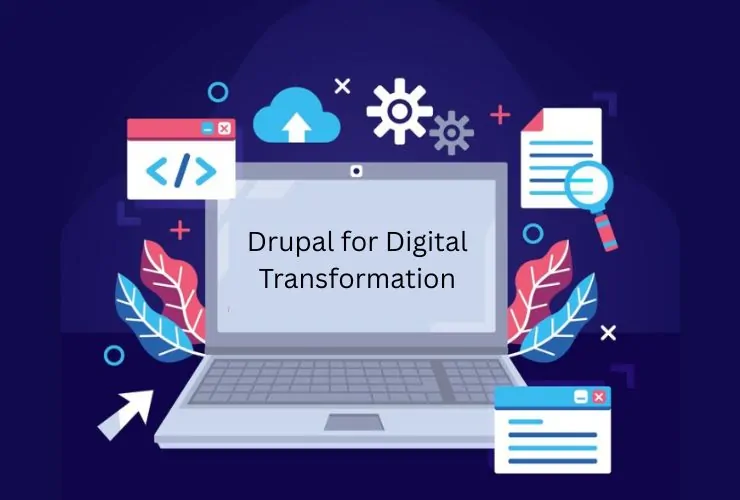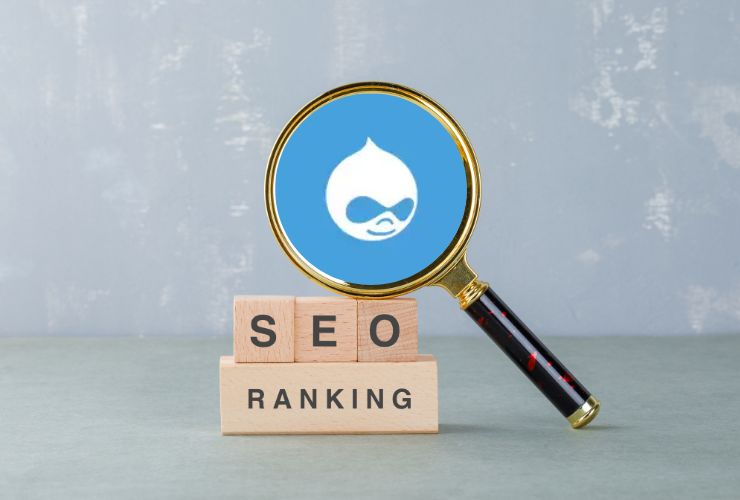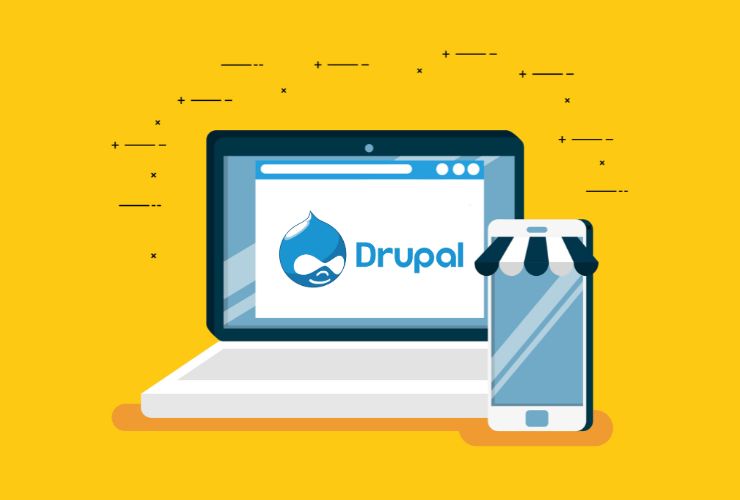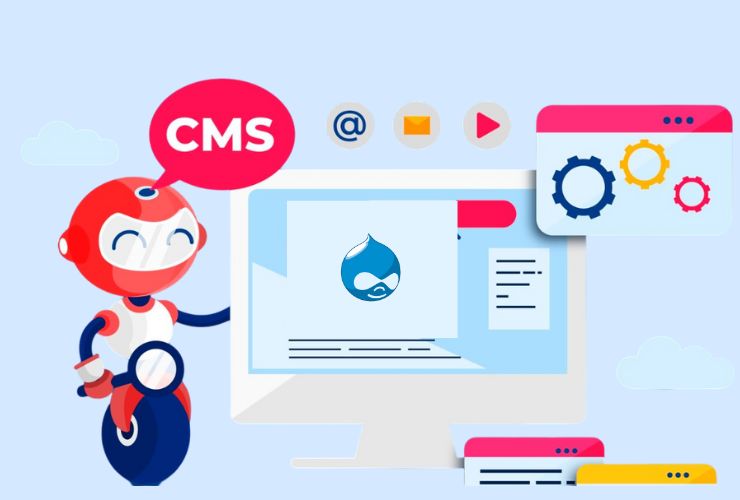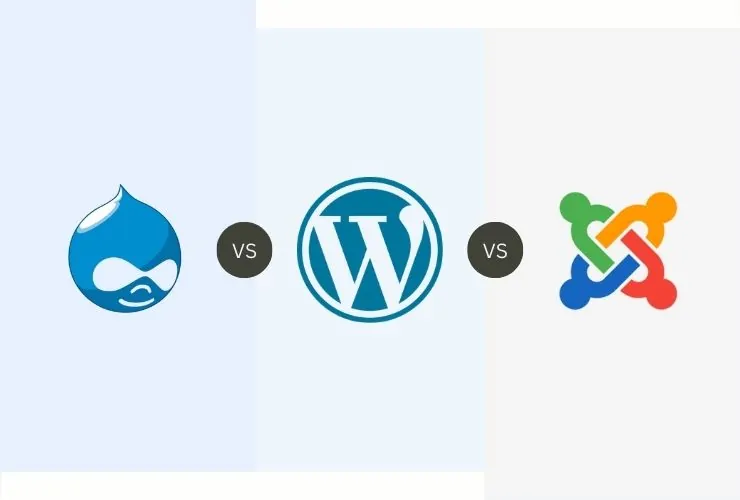In the fast-changing digital world today, businesses cannot help but offer seamless, immersive, and tailored experiences across more and more digital touchpoints. As customer expectations keep evolving, organizations must adapt quickly and strategically to stay in the game. Digital transformation isn’t a nice-to-have—digital transformation is a strategic imperative for long-term success.
At the heart of this change is the need for a platform that is not just scalable and robust but also agile enough to change to meet future needs. Drupal has emerged as a robust enabler of digital transformation for companies, governments, non-profits, and startups. Its adaptability, community-driven innovation, and scalability with your business make it an ideal foundation for any digital transformation process.
Unparalleled Flexibility and Customization
One of the greatest strengths of Drupal is its unmatched flexibility. Most content management systems are extremely limiting in the ways they organize or display content, yet Drupal lets you have control over every aspect of your web presence. You don’t have to follow fixed workflows or templates—you can shape your online presence to reflect your brand, meet user needs, and achieve your business goals.
From multilingual support and user role management to custom content types and advanced permissions, Drupal adapts to complex organizational requirements with ease. Whether you’re building a customer portal, an intranet, a product catalog, or a government site, Drupal can be molded to fit your needs with precision.
Scalable for Sustainable Growth
Digital transformation is a process that doesn’t stop once a website goes live—it keeps going as your audience expands, your services grow, and your technology stack matures. Drupal is built with scalability in mind, so it’s a great fit for companies looking to plan for future growth.
Whether you have a small content site or a vast digital landscape with hundreds of contributors and millions of users, Drupal can scale to meet it. Its modular design enables you to add capabilities when needed without sacrificing performance or stability. As your business requirements evolve, your Drupal platform can evolve with you—enabling long-term sustainability and ROI.
API-First Architecture for Seamless Integrations
Contemporary digital ecosystems are not commonly constructed independently. Organizations now leverage a range of tools and platforms—from customer relationship management (CRM) systems and enterprise resource planning (ERP) software to marketing automation platforms and third-party services. Drupal’s API-first design makes integration into such systems incredibly simple, so you can centralize your data and optimize operations.
With REST, JSON:API, GraphQL, and other integration protocols supported, Drupal serves as the foundation for an integrated digital landscape. It makes it possible for uniform, customized experiences across web, mobile, IoT, and more—enabling companies to engage with users wherever they’re located.
Enterprise-Grade Security
Security is a high concern in digital transformation, particularly for institutions handling sensitive customer data, financial information, or confidential data. Some of the world’s most security-conscious institutions—like government agencies, international NGOs, and Fortune 500 companies—trust and use Drupal.
Drupal comes with an active security team as well as strict community review process for core updates and contributed modules. It also comes with advanced user permissions, access controls, support for encryption, and security reporting tools. You can have the highest level of security without sacrificing agility or usability with Drupal.
Empowering Content-Driven Experiences
Content is the cornerstone of every digital strategy. In order to effectively transform digitally, companies need to be able to bring the right content to the right audience at the right moment—and in the right format. Drupal offers robust content creation and publishing capabilities that allow marketing and editorial staff to work independently of developers.
Features such as Layout Builder, Paragraphs, and media libraries enable you to create visually rich, responsive, and reusable content without writing any code. Drupal’s built-in multilingual functionality also enables you to localize your content for a global audience, allowing you to reach new markets and increase engagement.
Continuous Innovation Through Open Source
One of the strongest arguments for using Drupal is that it is open source. The platform has no licensing costs, and a global community of developers, designers, and contributors continuously expands its capabilities. This community-driven innovation keeps Drupal ahead of the curve on new trends—whether it’s headless architecture, AI integrations, or accessibility standards.
Open source also implies that you’re not locked into one vendor. You can choose to work with the agency, developer, or internal team of your preference, providing you with greater control over your digital destiny and minimizing dependency risks.
Agile and Future-Ready Development
The digital world is changing so fast, and old development cycles cannot keep pace. Drupal supports agile development methodologies, allowing teams to ship faster, iterate continuously, and adapt to changing requirements in real time.
Its decoupled (or headless) architecture support is particularly strong for organizations that are making an investment in new front-end technologies such as React, Vue, or Angular. By decoupling the front-end from the back-end, teams innovate independently, optimize performance, and create tailored experiences for each channel—web, mobile, kiosk, or wearable.
Final Thoughts
Digital transformation isn’t about one technology—it’s about building the proper digital foundation that supports innovation, growth, and agility. Drupal provides that foundation, with the tools, architecture, and community to create digital experiences that scale, adjust, and yield results.
Whether you’re revisiting your online strategy, launching a new product, merging legacy systems, or building a future-proof customer experience, Drupal helps you lead with confidence. It’s not a CMS—it’s a full digital experience platform designed for transformation.

